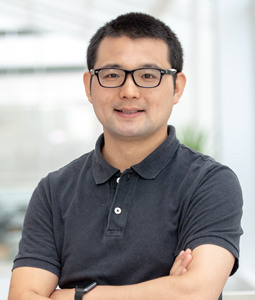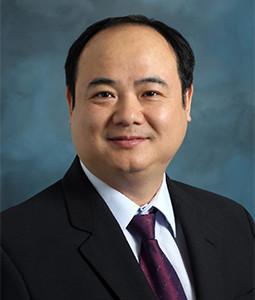Genomics Core
About the Core
The primary objective of the Genomics Core is to provide the necessary infrastructure and resources to faculty and students across UofSC to ignite and sustain comprehensive multidisciplinary genomic research. In collaboration with the Technology Hub, this core will utilize the existing High-Performance Computing facility at UofSC in order to satisfy its computational needs for comprehensive analysis of genomic data including De Novo and template-based assembly of genome/transcriptome, differential gene expression, meta genomics, phylogenetic identification of pathogens, modeling of RNA/protein binding, SNP analysis, and modeling of genomic mutations. In addition to physically extant USC services, the Genomics Core may work with other off campus entities (e.g., HSSC, CCI, VA hospital, or any other national/international data repositories). The Genomics Core is directed by Dr. H Valafar (CEC) and consists of strong expertise in Genomics, Proteomics, Bioinformatics, and Computational Medicine.
Research
The Genomic Core has allocated considerable efforts in enhancing the research infrastructure of the BDHSC, U of SC, and the state of South Carolina through in three primary areas. As we proceed forward, the core will aggregate and distribute three critical components of a successful research enterprise:
- Equipment (soon to come)
- Expertise (soon to come)
- Data (soon to come)
Consultation
The Genomic Core is excited to provide consultations, and participate in topics such as experimental design, data analytics, data visualization, design of genomic analysis pipelines, dissemination activities, and high-performance computing, to name a few. The Genomic Core can also function as a liaison to the newly emerging approaches such as Machine Learning and Artificial Intelligence.
Training
The Genomic Core of the BDHSC is committed to the training and fostering of the future generation of a multidisciplinary workforce. The scientific workforce of the future should represent multifaceted capabilities that are difficult to develop under the traditional single curriculum classwork. The Genomic Core actively pursues opportunities in training of students, staff scientists, and faculty in the broad area of omics-analyses. To that end, we have held and will continue to hold numerous training sessions including the following workshops that are available on YouTube:
- Linux workshop
- Perl programming workshops
- Python programming workshops
- Statistical analysis in R workshops
- Genomic analysis in R (soon to come)
- Basic Machine Learning in Matlab/Octave (soon to come)
- Student Case Competition 2020 tutorial session (soon to come)
Membership

Michael Shtutman, Ph.D.
Core Co-Lead
Dr. Shtutman is director of the NIH-funded Functional Genomics Core, part of the COBRE Center for Targeted Therapeutics, which supports multiple genomics-centered projects across the University of South Carolina and statewide. Currently, his research has centered on the application of Artificial Intelligence (AI) and advanced genomics for drug repurposing with a focus on the discovery of the treatment of HIV-associated neurocognitive disorder.

Hui Chen, Ph.D.
Core Co-Lead
Dr. Chen’s research focuses on understanding how the cellular components orchestrate the embryo development at the earliest stages of life, particularly focusing on elucidating how the early embryonic genome is regulated for cell fate specification in time and space. In addition, he also studies the novel mechanisms and functions of biological size regulation in development and diseases.

Homayoun Valafar, Ph.D.
Core Member
Dr. Valafar’s research activities fall into two broad categories of research: Computational Medicine and Computational Biology. The computational medicine tier of his research is focused on development of computational modeling of human response to different medical treatments or methods of rehabilitation.

Forest Agostinelli, Ph.D.
Core Member
Forest Agostinelli’s research involves designing new artificial intelligence algorithms and applying these algorithms to problems in the sciences. Simultaneously, his research draws upon the sciences to provide inspiration for new artificial intelligence algorithms.

Casey Cole
Core Member
Casey Cole’s current projects include protein structure calculation, protein dynamics, genomic analysis and pattern recognition.

